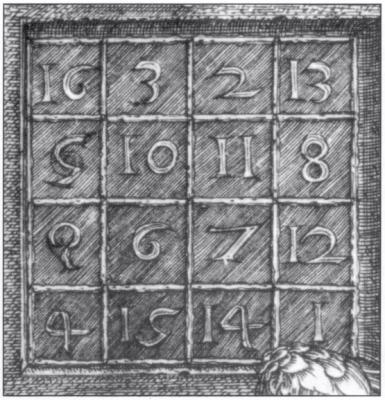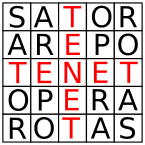... newer stories
Sonntag, 6. März 2011
Richard Hoovers Forschung über Extremophile
klauslange,12:51h
Hier mal ein wenig Hintergrund zur bisherigen Forschung von Richard B. Hoover, der nun Beweise für außerirdische Lebensformen proklamiert.
... link (1 Kommentar) ... comment
Sensation: Mikrofossilien in CI1 Meteoriten
klauslange,01:09h
NASA - Wissenschaftler veröffentlichen - nach ihrer Meinung - Beweise für außerirdische Mikroben-Fossilien in einem Meteoritenstück.
Zum peer review Journal mit der Abhandlung:
hier
Die Bilder sind beeindruckend, viel klarer als damals ALH84001...
Darin:
Dr. Hoover has discovered evidence of microfossils similar to Cyanobacteria, in freshly fractured slices of the interior surfaces of the Alais, Ivuna, and Orgueil CI1 carbonaceous meteorites. Based on Field Emission Scanning Electron Microscopy (FESEM) and other measures, Dr. Hoover has concluded they are indigenous to these meteors and are similar to trichomic cyanobacteria and other trichomic prokaryotes such as filamentous sulfur bacteria. He concludes these fossilized bacteria are not Earthly contaminants but are the fossilized remains of living organisms which lived in the parent bodies of these meteors, e.g. comets, moons, and other astral bodies. The implications are that life is everywhere, and that life on Earth may have come from other planets.
Official Statement from Dr. Rudy Schild,
Center for Astrophysics, Harvard-Smithsonian,
Editor-in-Chief, Journal of Cosmology.
Dr. Richard Hoover is a highly respected scientist and astrobiologist with a prestigious record of accomplishment at NASA. Given the controversial nature of his discovery, we have invited 100 experts and have issued a general invitation to over 5000 scientists from the scientific community to review the paper and to offer their critical analysis. Our intention is to publish the commentaries, both pro and con, alongside Dr. Hoover's paper. In this way, the paper will have received a thorough vetting, and all points of view can be presented. No other paper in the history of science has undergone such a thorough analysis, and no other scientific journal in the history of science has made such a profoundly important paper available to the scientific community, for comment, before it is published. We believe the best way to advance science, is to promote debate and discussion.
Edit (7.3.2011):
Korrekterweise muss ich aber auch auf das Statement der NASA hinweisen:
http://www.spaceref.com/news/viewpr.html?pid=32928
Im Jahre 2007 hat Hoover wohl versucht seine Ergebnisse im Journal for Astrobiology zu veröffentlichen, aber das peer-review Verfahren wurde nie vollendet. Was bedeutet das? Nun, seine Arbeit wurde nicht in Bausch und Bogen abgelehnt, aber man wollte wohl Korrekturen in den weitreichenden Aussagen Hoovers haben, die der Autor wohl nicht bereit war durchzuführen. Seine Schlussfolgerungen - nicht nur zu den einzelnen Befunden von Alien-Bakterien, sondern zum Leben im All insgesamt - sind wirklich sehr weitreichend. Jedenfalls wollte ich das auch zur Kenntnis bringen...
Zum peer review Journal mit der Abhandlung:
hier
Die Bilder sind beeindruckend, viel klarer als damals ALH84001...
Darin:
Dr. Hoover has discovered evidence of microfossils similar to Cyanobacteria, in freshly fractured slices of the interior surfaces of the Alais, Ivuna, and Orgueil CI1 carbonaceous meteorites. Based on Field Emission Scanning Electron Microscopy (FESEM) and other measures, Dr. Hoover has concluded they are indigenous to these meteors and are similar to trichomic cyanobacteria and other trichomic prokaryotes such as filamentous sulfur bacteria. He concludes these fossilized bacteria are not Earthly contaminants but are the fossilized remains of living organisms which lived in the parent bodies of these meteors, e.g. comets, moons, and other astral bodies. The implications are that life is everywhere, and that life on Earth may have come from other planets.
Official Statement from Dr. Rudy Schild,
Center for Astrophysics, Harvard-Smithsonian,
Editor-in-Chief, Journal of Cosmology.
Dr. Richard Hoover is a highly respected scientist and astrobiologist with a prestigious record of accomplishment at NASA. Given the controversial nature of his discovery, we have invited 100 experts and have issued a general invitation to over 5000 scientists from the scientific community to review the paper and to offer their critical analysis. Our intention is to publish the commentaries, both pro and con, alongside Dr. Hoover's paper. In this way, the paper will have received a thorough vetting, and all points of view can be presented. No other paper in the history of science has undergone such a thorough analysis, and no other scientific journal in the history of science has made such a profoundly important paper available to the scientific community, for comment, before it is published. We believe the best way to advance science, is to promote debate and discussion.
Edit (7.3.2011):
Korrekterweise muss ich aber auch auf das Statement der NASA hinweisen:
http://www.spaceref.com/news/viewpr.html?pid=32928
Im Jahre 2007 hat Hoover wohl versucht seine Ergebnisse im Journal for Astrobiology zu veröffentlichen, aber das peer-review Verfahren wurde nie vollendet. Was bedeutet das? Nun, seine Arbeit wurde nicht in Bausch und Bogen abgelehnt, aber man wollte wohl Korrekturen in den weitreichenden Aussagen Hoovers haben, die der Autor wohl nicht bereit war durchzuführen. Seine Schlussfolgerungen - nicht nur zu den einzelnen Befunden von Alien-Bakterien, sondern zum Leben im All insgesamt - sind wirklich sehr weitreichend. Jedenfalls wollte ich das auch zur Kenntnis bringen...
... link (4 Kommentare) ... comment
... older stories

